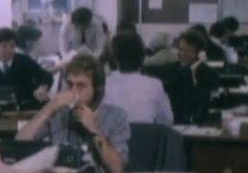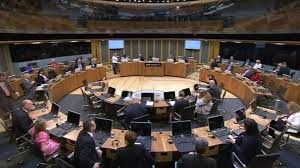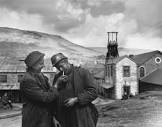- Return to sender - 20th February 2026
- Legal eagle - 19th February 2026
- Round Robin - 19th February 2026

During 23 years with the BBC, and in a 42 year journalistic career (when he was trained to use clear and simple language, avoiding jargon), for our Editor, Welshman Phil Parry, it became clear that politicians and senior officials were mostly concerned with IMAGE – both of how they were perceived directly, and what the view was of the country (which indirectly they could benefit from).
In all the many political interviews I have undertaken, it was obvious that the subject would mostly be worried about how he (and it usually was a ‘he’) came across.
In other words the main concern was not the policies, but how the politician was perceived by the public.

There would also be questions from him afterwards, about what the general view was of how he was doing, and by default how the country was doing because he would get plaudits if the perception abroad was a good one.
For example one senior politician was known for his sartorial elegance, and would discombobulate me, nullifying my questions, by complementing me disingenuously on my appearance.
Another would take a comb to his hair, and insist on recording a bit where he wasn’t talking to see it back before the actual interview, in order to work out how he looked on camera.

His political colleague would always refuse to be interviewed unless his image consultant was present.
It wasn’t just senior politicians either – you would also get the same concerns expressed by executives in government agencies.
In the 1980s and 1990s Wales suffered terribly from the de-industrialisation of the UK but the image that they would want presented was very different – one of an attractive tourist location that was full not of metal bashing industries, but of businesses using or inventing cutting-edge technologies.


Invariably these people would want to be seen as a go-ahead part of a forward-looking Wales.
This was odd because the actual perception of Wales elsewhere is not forward-looking at all – it is extremely old-fashioned.
In a survey of the public in England three years ago, these were some of the comments about Wales: “It has beautiful landscapes”, “Many Welsh people have lovely voices and sing well”, “There are a lot of closed coal mines”.
This is what one Guardian journalist wrote, also three years ago who left Wales when she was 18: ‘…I wanted a “big life”, and felt that I needed to be in a big city to achieve that. Despite this, I still feel Welsh; identity can be a knotty thing. If you pressed me I suppose I would say that I’m “London Welsh”, part of the diaspora that has made the English capital our home’.

It’s not just people with links to Wales that have an outdated view of the country, but those in the UK generally.
Ask Britons how they feel about the UK today and you could be forgiven for thinking you had teleported back to 1976.
Newspaper headlines suggest everyone is on the cusp of an IMF bail-out, crime is out of control and public services are close to collapse.

“We are living through a period of economic and social decline”, bemoaned Nigel Farage, whose populist Reform UK party leads in the polls. “Our great country is heading in the wrong direction”.
Building on image, I would suggest that it is often a refrain from right-wing politicians that we are going to hell in a hand cart!
But it is not just them, because nearly three-quarters of people in the UK appear to agree, according to polls, and almost half of Britons also say that Britain is perceived negatively by the rest of the world.

Yet the wider view from abroad tells a different story. This year’s survey data from the British Council (BC) on global perceptions of the UK show that its international reputation is holding up remarkably well.
Among 18 to 34-year-olds, the UK is ranked as the third-most-attractive place in the G20 group of big economies.
Trust in the British government scored highest, and trust in our institutions was second only to Japan.

“If you look at classic soft-power measures—culture, institutions, people and values—then the UK is holding really steady”, declared Christine Wilson of BC.
However image, not reality, is everything.
Unfortunately…

Details of Phil’s, astonishing decades-long journalistic career (when interviews with image-conscious politicians would often dominate), as he was gripped by the rare neurological condition Hereditary Spastic Paraplegia (HSP), have been released in an important book ‘A GOOD STORY’. Order it now.









